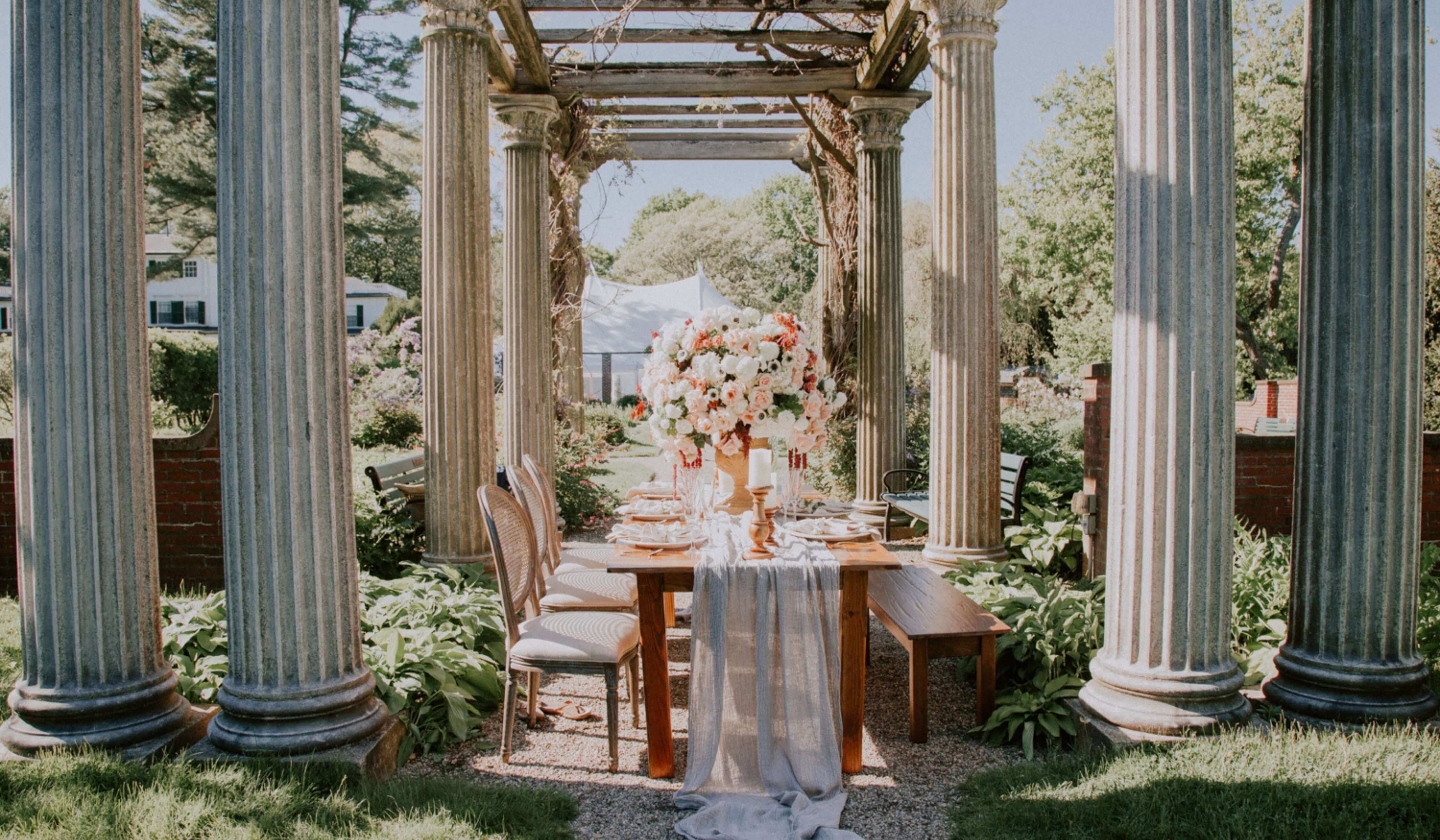You're engaged! Congrats! Now the fun begins - planning your dream wedding! But wait, should you hire a wedding planner or a coordinator? What's the difference? I know, it can be confusing. But don't worry, I've got you covered.
The world of wedding planning can be daunting, but with a little help, it can be a little easier and manageable. That's why I want to break down the main differences between wedding planners and coordinators for you. Trust me, understanding their role and the type of work they do can save you a lot of stress (and money!) in the long run.
Table of Contents:
Wedding Planner vs Coordinator: Understanding the Differences
Planning a wedding is no joke. It's a special day, and you want it to be perfect. That's where wedding planners and wedding coordinators come in. But what's the difference between a wedding planner and a coordinator? And which one do you need for your wedding?
Here's the important thing to remember: wedding planners and coordinators have different roles and responsibilities in the wedding planning process. A wedding planner is like your personal wedding guru who will be with you from the very beginning. They offer a wide range of services, from full planning to partial planning and even destination wedding planning. They'll help the wedding couple choose a venue, design invitations, and create a seating chart. On the other hand, Coordinators usually offer day-of coordination services, which means they'll take over the reins about a few weeks before the wedding. They'll tie up any loose ends, confirm details with vendors, and make sure everything is in place for the big day.
 Photo credit: Tina Ricketts Photography
Photo credit: Tina Ricketts Photography
What Does a Wedding Planner Do?
Ah, the age-old question: what exactly does a wedding planner do? Well, let me tell you, they do a lot more than just pick out pretty flowers and create a killer playlist (although those things are important too).
Comprehensive Planning
A full-service wedding planner is like your personal assistant, therapist, and creative director all rolled into one. They'll help you with every aspect of the wedding planning process, from setting a budget to booking vendors to creating a detailed timeline and finding the perfect venue. They'll also be there on the big day to make sure everything runs smoothly, so you can sit back, relax, and enjoy your wedding.
Design and Styling
One of the best things about hiring a wedding planner is that they have an eye for design. This is the expertise of a full wedding planner. Their creative vision will help you achieve a cohesive aesthetic for your wedding, from the invitations to the centerpieces to the lighting. They'll also have relationships with top-notch vendors in the industry, so they can recommend the best florists, photographers, and caterers to bring your vision to life.
Budget Management
Let's be real: weddings are expensive. But a good wedding planner will help you make the most of your budget, no matter how big or small. They'll help you prioritize your spending, find ways to save money, and keep track of all the little details that can add up quickly. Trust me, you'll be glad you have someone do the number crunching so you can focus on the other important details.
Vendor Management
Speaking of vendors, a wedding planner will be your point of contact for all communication and coordination with them. They'll review contracts, negotiate prices, and make sure everyone is on the same page. They'll also be there on the day of the wedding to make sure all the vendors show up on time and do their job correctly. So you can focus on getting married, not worrying about whether the DJ has the right playlist or if the caterer remembered your Aunt Susan's gluten allergy.
The Role of a Wedding Coordinator
Now, let's talk about wedding coordinators. They may not be as involved in the early planning stages, but they play a crucial role in making sure your wedding day goes smoothly.
Types of Coordinators
There are a few different types of wedding coordinators you might encounter. The most common is the day of wedding coordinators, who step in about a month before the wedding to tie up loose ends and handle all the logistics on the big day. Some venues also have in-house coordinators who work specifically with couples getting married at their location. Some planners offer wedding coordination services as part of their packages.
Coordination Timeline
So, when does a coordinator typically get involved in the process? Usually, they'll start working about 1-2 months before the wedding. They'll sit down with the happy couple to review all the details that have been planned so far, from the vendor contracts to the wedding day timeline to the floor plans. They'll make sure everything is in order and help fill in any gaps.
Day-of Coordination
On the wedding day itself, your coordinator will be your go-to person for, well, everything. They'll make sure all the vendors show up on time and set up correctly, keep the timeline on track, and handle any last-minute emergencies that pop up. They'll also be the point person for your wedding party and family members, answering questions and making sure everyone is where they need to be. A day-of coordinator is like a project manager for your wedding. They work behind the scenes to make sure everything runs smoothly, so you can relax and enjoy your big day.
Choosing Between a Wedding Planner and Coordinator
So, how do you decide between a wedding planner and a coordinator? It all boils down to your unique needs, preferences, and budget.
Assess Your Needs
Take a moment to envision your dream wedding. Do you have a clear idea of what you want, or do you need guidance every step of the way? If you're feeling overwhelmed by the sheer number of decisions and details involved, a full service wedding planner might be your best bet. They'll be your best friend, helping you navigate the planning process with ease. However, if you're a hands-on couple who loves diving into the nitty-gritty of wedding planning, a coordinator could be the perfect fit. They'll swoop in during the final stretch to ensure a flawless execution of your hard work.
Budget Considerations
Your budget is a key factor in determining whether to hire a planner or coordinator. While planners offer unparalleled support and expertise, their services come at a higher price point. If you have room in your budget for a full-service planner, go for it. The peace of mind and stress-free experience they provide are invaluable. But if you're working with a tighter budget, a day-of wedding coordinator can still give you the support you need without breaking the bank. They'll focus on the essential elements of your wedding day, making sure everything runs smoothly.
Combining Services
Here's a little secret: you don't always have to choose between a planner and a coordinator. As mentioned above, some planners offer coordination services as part of their packages, giving you the best of both worlds. This hybrid approach allows you to benefit from a planner's expertise throughout the entire planning process while ensuring a seamless handoff to coordination services closer to your wedding day. It's a win-win situation that provides comprehensive support and peace of mind from start to finish.
How Wedding Planners and Coordinators Work Together
When you have both a wedding planner and a coordinator on your team, magic happens behind the scenes. Their collaboration and communication are key to bringing your vision to life.
Communication and Collaboration
Picture this: your wedding planner has been working tirelessly for months, curating every detail of your big day. As the wedding approaches, they pass the baton to your coordinator, who steps in to execute the plan flawlessly. But it's not just a simple handoff. Your planner and coordinator work closely together, sharing information, timelines, and vendor contracts. They're in constant communication, ensuring that everyone is on the same page. This seamless collaboration is the backbone of a successful wedding. It allows your planner to focus on the creative aspects while your coordinator handles the logistics and troubleshooting on the day itself.
Ensuring a Seamless Event
Have you ever been to a wedding where everything just flowed effortlessly? Chances are, there was a rockstar team of planners and coordinators working their magic behind the scenes. Your planner sets the stage to ensure that you get the wedding ceremony of your dreams. They work with vendors to bring your vision to life, from stunning floral arrangements to mouthwatering menus. Meanwhile, your coordinator is the master of logistics. They create detailed timelines, coordinate vendor arrivals and setups, and handle any last-minute hiccups that may arise. Together, your planner and coordinator ensure that every last detail of your big day is a seamless, stress-free experience for you and your guests.
Building a Strong Wedding Team
When you hire a wedding planner and coordinator, you're not just gaining two professionals – you're building a dream team of experts who are dedicated to making your wedding unforgettable. Your planner and coordinator work hand in hand with other key players, such as your caterer, florist, and photographer. They foster strong relationships and open lines of communication among all vendors. This collaborative approach ensures that everyone is working towards the same goal: bringing your wedding vision to life. Your planner and coordinator act as the glue that holds everything together, making sure that each vendor understands their role and responsibilities. With a strong wedding team led by your planner and coordinator, you can rest assured that your special day will be a resounding success.
 Photo credit: Ginny Lea Photography
Photo credit: Ginny Lea Photography
Key Takeaway:Planners and coordinators play different but crucial roles in weddings. Planners dive deep from the start, covering every detail to bring your vision alive, while coordinators step in later to ensure smooth execution. Your choice depends on how much help you need and your budget, but mixing both could give you peace of mind. |
Conclusion
Wedding planners and coordinators - they're not the same thing. Planners are your go-to for the entire journey, from "yes" to "I do." They're the visionaries, the budget gurus, and the vendor wranglers. Coordinators? They're the day-of superheroes who make sure your entire wedding plans are in good working order.
So, which one do you need? It depends on your wedding dreams, your budget, and how much you want to DIY. But now that you know the difference between a wedding planner and a coordinator, you can make the choice that's right for you.
Remember, your wedding day is about celebrating your love story. Whether you have a planner, a coordinator, or a combo of both, the goal is to make your day unforgettable!


